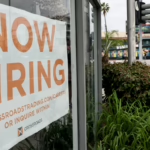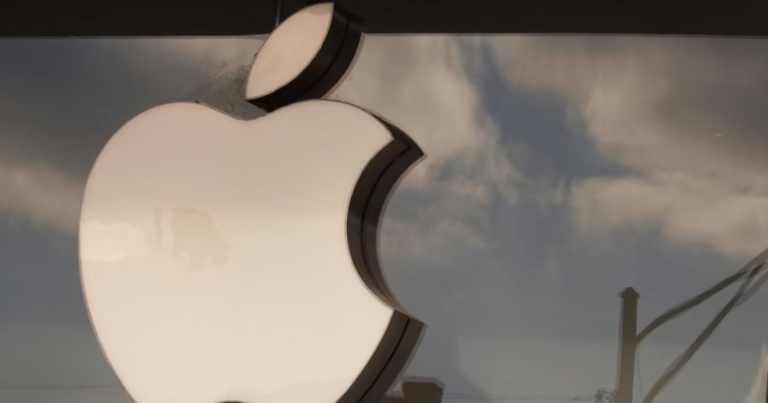Apple, the renowned technology leader, has officially taken down ICEBlock-a crowdsourcing application designed to report sightings of US immigration officers-along with similar apps from its App Store. This action follows pressure exerted by the administration of President Donald Trump.
As of Friday, ICEBlock was no longer accessible for download on Apple’s platform.
The app’s team announced on BlueSky, “Apple’s App Review informed us that #ICEBlock was removed from the App Store citing ‘objectionable content.’ We suspect this decision stems from pressure by the Trump administration. We have responded and intend to challenge this!”
This removal is an uncommon example of government influence leading to the withdrawal of an app, sparking debates about corporate compliance with political demands and the boundaries of free expression.
ICEBlock, available exclusively for iPhone users, enables individuals to anonymously document and monitor Immigration and Customs Enforcement (ICE) operations.
Created in April as a reaction to President Trump’s stringent immigration policies and the surge in ICE detentions, the app serves as a tool for community awareness.
Since Trump’s second term began, ICE has intensified efforts to deport undocumented immigrants, frequently conducting raids at workplaces, residences, and courthouses. Advocates for civil rights argue that these actions often violate free speech and due process protections.
Apple’s removal of ICEBlock also highlights the increasing interplay between major technology companies and the Trump administration. Many corporations, including Apple, have aimed to avoid confrontations with the White House, which has been known to leverage threats such as tariffs against specific businesses.
In an official statement, Apple explained, “Following information from law enforcement regarding safety concerns linked to ICEBlock, we have removed it and related applications from the App Store.”
Fox Business initially broke the news on Thursday, quoting US Attorney General Pam Bondi, who confirmed that the Department of Justice had requested Apple to pull the app, a request the company honored.
Bondi stated, “ICEBlock is intended to endanger ICE agents simply for performing their duties. Violence against law enforcement crosses an unacceptable boundary.”
Joshua Aaron, the Texas-based developer behind ICEBlock, rejected this portrayal and condemned Apple’s decision.
“I am deeply disheartened by Apple’s choice today. Yielding to an authoritarian regime is never justified,” Aaron told Reuters.
David Greene, civil liberties director at the Electronic Frontier Foundation (EFF), a digital rights advocacy group, viewed the removal as part of a broader pattern of governmental overreach.
“This outcome was anticipated-they have been threatening such actions for some time, and we expect more unconstitutional measures ahead,” Greene told Al Jazeera.
He emphasized that the Trump administration has demonstrated “little respect” for legal norms, noting that the app’s functions are safeguarded by the First Amendment, which guarantees free speech.
Greene further argued that transparency about government operations, especially on sensitive topics like immigration, is crucial. However, he added, the administration “has never genuinely supported the free exchange of information.”
“Disseminating truthful information on public matters deserves the highest First Amendment protection, and government activities, including the identities of those involved, are undeniably of significant public interest,” Greene stated.
A Stern Warning
Attorney General Bondi has previously asserted that Aaron is “not shielded” by constitutional protections and hinted at potential prosecution, cautioning him to “be careful.”
Community-led monitoring of federal immigration agents has grown more assertive recently, as activists strive to safeguard their neighborhoods from aggressive ICE enforcement.
Since President Trump’s return to office, ICE has escalated its operations, supported by a July bill allocating $75 billion in funding through 2029.
The agency has also targeted visa holders and permanent residents involved in pro-Palestinian activism.
One notable case involved Mahmoud Khalil, a US resident of Palestinian descent, who was detained after serving as a spokesperson for antiwar demonstrations at Columbia University-a move widely criticized by rights organizations as intimidation.
Although Khalil was released in June, deportation proceedings continue. In September, an immigration judge in Louisiana ordered his removal, with a 30-day window for appeal.
Legal experts maintain that civilian observation of ICE activities is largely protected under the US Constitution, provided it does not interfere with law enforcement duties.
In 2024, Apple removed over 1,700 apps from its App Store due to government requests, with the majority-more than 1,300-originating from China.
Russia submitted the second-highest number of takedown demands at 171, followed by South Korea with 79.
Historically, the US has rarely been among the countries prompting app removals based on government pressure, according to Apple’s transparency reports.
Given that most iPhones are manufactured in China, Apple remains particularly sensitive to tariff policies.
Recently, the White House has proposed potential tariffs on semiconductor imports used in Apple products such as iPhones and Mac computers.
Apple routinely removes thousands of apps annually for various reasons, including design flaws, fraud, or intellectual property violations-over 82,500 apps were removed in 2024 for such causes. On Friday, Apple’s stock experienced a slight decline.

















